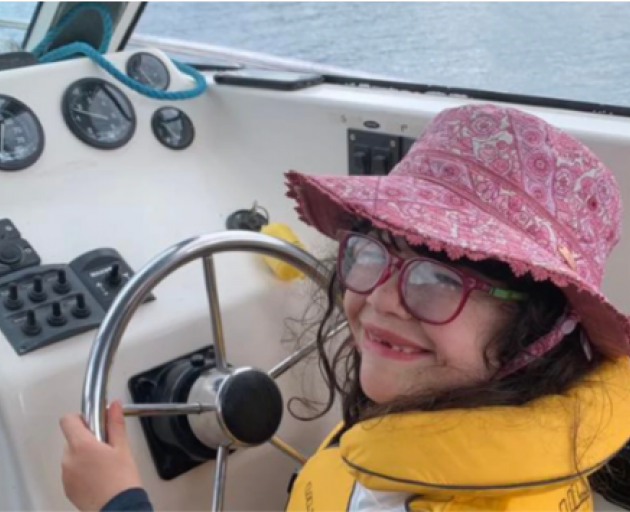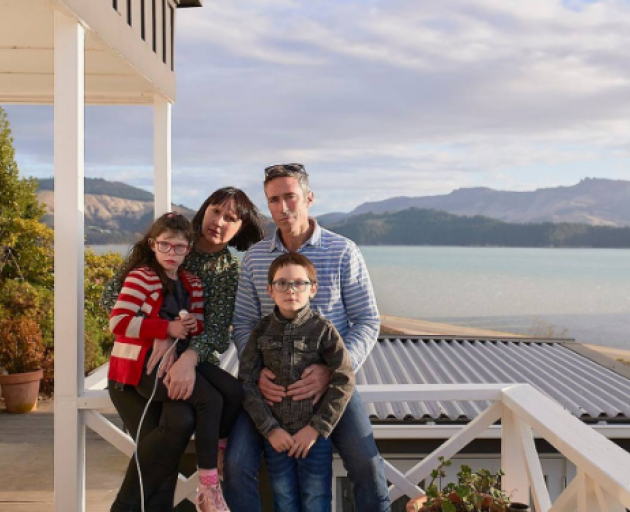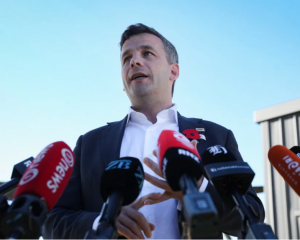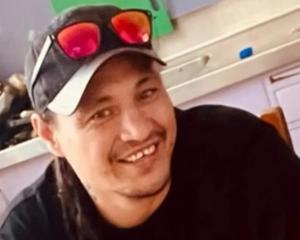
The 'Starship on call across Aotearoa' campaign is under way, and little Lucy White's parents Charlotte Easton and Myles White are hoping it garners widespread support.
As a medically complex child, the first few years of Lucy's life were a blur of admissions, surgeries, and flights from their home at Charteris Bay, Canterbury up to Starship Children's Hospital in Auckland.
Today, her parents manage her condition with frequent visits to Starship's Cardiology outreach clinics at Christchurch Hospital.
Starship services and clinicians reach across New Zealand, working in partnership with local teams around the country.
The nationwide care means children and young people, like Lucy, get the urgent care they need in hospital, and the ongoing support they need to thrive at home.
Lucy was born on May 9, 2014 at Christchurch Women's Hospital.
She was diagnosed with Williams Syndrome, a genetic condition that can present a range of health challenges.
Nothing showed up on 13 and 20-week scans, and mum Charlotte had had a fairly regular pregnancy and birth.
Immediately after she was born, Lucy struggled to breathe, and birthing staff took her to the Neonatal Intensive Care Unit (NICU).
The next day, Charlotte and her partner Myles were told she had a heart condition, and potentially a more complex underlying condition.

"Williams Syndrome means Lucy is missing 26 genes, one of which is the elastin gene," Charlotte says.
"It also means the arteries in her heart aren't elastic, and don't open like they should. As a result, Lucy has Supravalvular Aortic Stenosis – a narrowing of the blood vessel that carries blood from the heart to the rest of the body."
Left untreated, this condition can be quickly fatal.
Charlotte's family were told she'd need to go to Starship for heart surgery.
Charlotte and Myles were able to take Lucy home, with oxygen to help keep her alive.
The first few weeks were immensely difficult for the family, who'd often stay awake wondering if she was breathing.
Lucy returned to Christchurch Hospital after five weeks. Her condition deteriorated, and she flew to Starship earlier than planned.
She had her first operation with Starship's world-class heart surgeon Kirsten Finucane the day after she arrived – at just five weeks old. While it is a significant risk to put children with Lucy's condition under general anaesthetic, it couldn't wait.
Finucane "pulled her through," according to Charlotte, even though Lucy went into cardiac arrest while she was being put on heart bypass.
Lucy recovered well and flew home to Christchurch but came back to Starship for another surgery at 15 weeks.
The surgery itself went well, but Lucy took a sudden turn during her recovery in Starship's Paediatric Intensive Care Unit (PICU) and needed emergency surgery to save her life.
Lucy required further heart procedures including at seven months and 15 months of age.
In total, she's had 15 procedures under general anaesthetic.
Every time she has a surgery, it happens at Starship.
"She's just too much a of a risk going under general anaesthetic – at Starship, there's Paediatric Cardiac Surgeons close by if need be," says Charlotte.
Lucy's most recent heart surgery was in October last year, aged 7.
It's unlikely she'll need any more until she's a teenager, and Charlotte hopes they won't need to return to Starship until then.
Lucy's lead cardiologist Dr John Stirling comes to Christchurch Hospital.
"We see him there every three or six months, depending on where she's at. And the paediatrician here in Christchurch contacts Starship if they have any concerns," Charlotte says.
"We've built an amazing relationship with the Starship team. I can email John or Kirsten and get help if I'm worried about anything. It's amazing having direct contact with them."
Although Lucy doesn't need to travel to Starship in the near future, Starship will continue to play an integral role in her care. Through outreach clinics and advice to Charlotte and the Christchurch clinical team, Starship is always on call to help manage Lucy's care.
Charlotte's immensely grateful for the relationships the family has built with the clinical teams and staff at Starship, and the fact they're always there when she needs them.
"You're not just a number," she says.
The Starship Foundation has stood alongside Starship for more than 30 years, helping bring Kiwi kids "better health and brighter futures". Sixty per cent of Starship admissions are for patients from outside the Auckland region.
Chief executive Aisha Daji Punga says that New Zealanders who support Starship are making a real difference.
"Here at the Starship Foundation, we see exciting times ahead at Starship with aspirations to lead equity, innovation and excellence in child health in the new landscape of healthcare. In fact, I believe there's never been a more important time to donate to Starship."
To donate and help Starship answer the calls of children across Aotearoa, visit www.starshiponcall.org.nz











